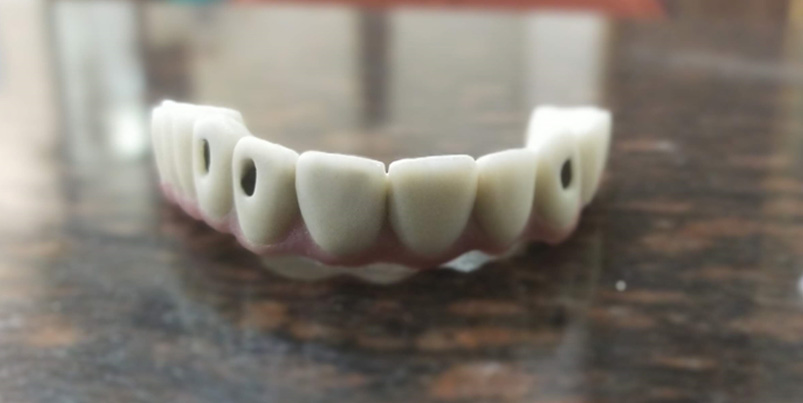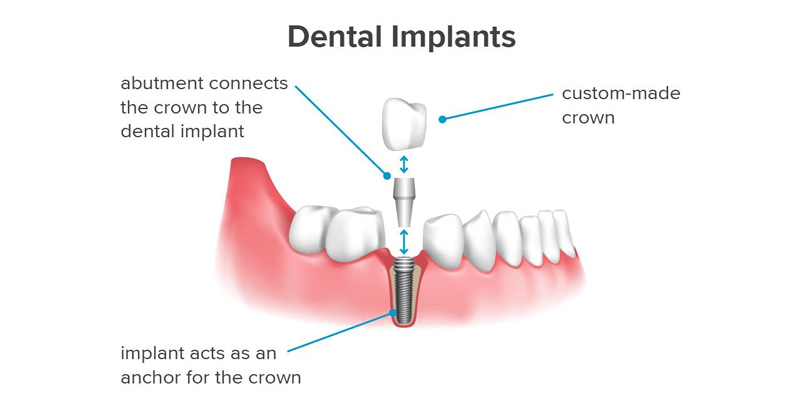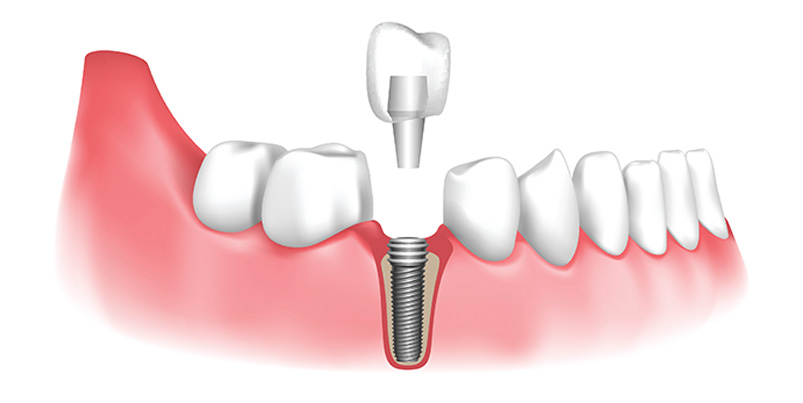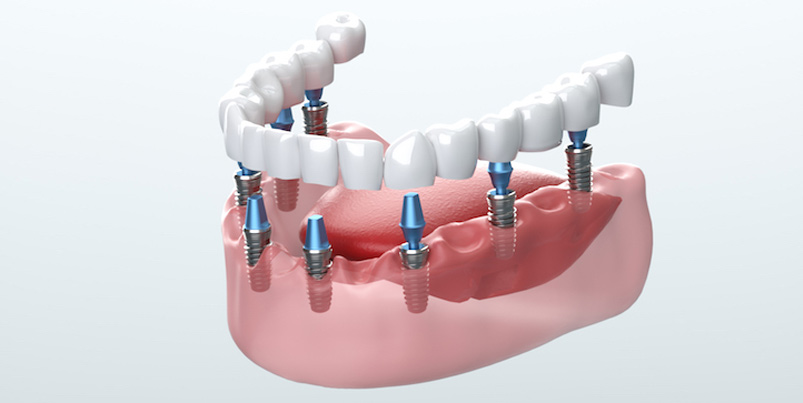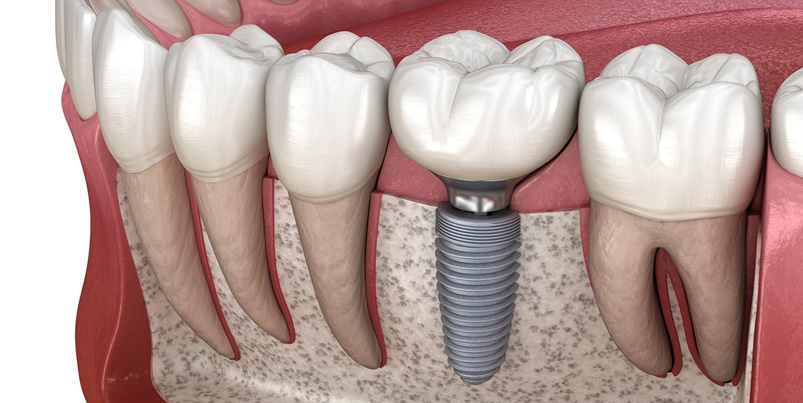Dental implants
Dental implants Treatments
What are Dental implants?
A dental implant is a small titanium post that is surgically placed into the jawbone to serve as the root of a missing tooth. Once the implant has fused to the jawbone, a replacement tooth called a crown can be attached to the implant. This provides a stable, long-term solution for missing teeth and can improve the appearance and function of the smile.
What is the procedure for Dental implants?
Evaluation: Assess available space around the missing tooth using measurements and x-rays for determining the number of implant screws and crowns.
Diagnosis and Treatment Planning: Use measurements and x-rays to plan implant placement, considering overall health, dental condition, oral hygiene, and medical history.
Implant Screw Placement: Perform minor surgical procedure under local anesthesia to insert the implant screw into the jaw bone.
Healing Phase: Allow 3-4 months for the implant to fuse with the jaw bone; confirm osseointegration through x-rays.
Confirmation and Stability: Ensure stability of the fused implant, capable of withstanding biting forces.
Preparing for Crown: After confirming osseointegration, prepare the implant to receive a crown, making necessary adjustments.
Crown Placement: Securely attach the crown to the implant, ensuring proper fit and alignment for functional and aesthetic purposes.
Post-Treatment Monitoring: Schedule regular follow-up appointments to monitor implant success and address any concerns related to the implanted crown.
Am I a candidate for teeth-implant treatments?
The right candidacy of implants will rely upon your general and oral health. Mainly, it is your jawbone that needs to be adequately present to support the implant. You should also be with your healthy gums; free from gum disease. Consulting your dentist will exactly tell you what to do and how. Get a dental appointment to know your best candidacy. The dental implants India consultation offers the best dentistry solutions.
Benefits of the treatment
- Restores the full chewing power
- Dental Implants are Biocompatible
- Dental implants are Durable
- Dental implants maintain the jaw-bone level
- Dental implants improve self-esteem
- Dental implant maintains the oral health
Oral health is overall health
Make sure you are using correct brushing technique
Brushing your teeth at least twice a day is essential – after breakfast in the morning and before going to bed at night. Spend at least 2 minutes brushing, ensuring that all areas are cleaned – the inside, outside, and biting surfaces of each tooth. The key is to aim the toothbrush bristles directly at the gum line, rather than the top of the tooth, as this is where plaque starts to form. Gently move the toothbrush in a circular motion, which will clean away as much plaque from the gums as possible.
Make sure you follow the right diet.
Try to reduce or eliminate the amount of sugary food and fizzy drinks you eat and drink. It converts to acid inside your mouth and can dissolve the minerals in tooth enamel, causing decay (caries) and eventually holes (cavities). Acidic foods and drinks can also cause tooth erosion which causes tooth sensitivity, discolouration and cracks over time.
More tips
After every meal, rinse out your mouth with antiseptic mouthwash to help kill germs, or at least water to wash away food debris. Another handy tip is to clean your tongue as it removes plaque that’s full of bacteria and can cause bad breath. While special plastic tongue scrapers are available at chemists, a toothbrush can be used just as effectively. Don’t be tempted to crack nuts, rip open a plastic package or even remove a bottle top with your teeth – there’s a risk of chipping or breaking. Remember, use your teeth just for chewing food.


